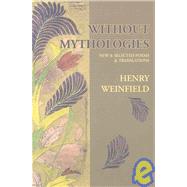In 1971 Henry Weinfield, Professor in the Program of Liberal Studies at the University of Notre Dame, sent Frye a copy of the following poem, which Weinfield dedicated to Frye. The poem was later published in Weinfield’s In the Sweetness of the New Time (Atlanta: House of Keys, 1980), 37–8.
THE DOLOROUS WOOD
Distinguo.
I distinguish between the two cases:
The bird of the forest and the bird of the poem.
The Nightingale flies in the poem,
The Dolorous Wood,
Not Mother Nature’s forest,
Hovering th’ambiguous foliage.
Nor does he fly as a symbol,
Perched on a Golden Bough,
As metaphor or allegory
Or as messenger between the realms.
There are no messengers between the realms,
And I distinguish between the two cities:
The Nightingale flies in the poem,
For the song that he sings is himself.
And when the Phoenix is burnt on the pyre,
Does he rise as a myth among men?
And are there any reasons?
The circles converge
Not on the singer but the song.
The ashes are lost in the wind,
And the song goes forth from the flame,
Ant there are no reasons.
And therefore, distinguo.
I distinguish between the two grammars:
The sphere of the singer and the sphere of the song.
The Phoenix goes forth from the pyre
As a song in the midst of the world,
And he fashions these verses out of nothing
In order that you might remember
to Northrop Frye
Frye replied to Weinfield, saying
Thank you very much for your letter, for the poem, and for the great honour of dedicating the poem to me. I don’t find it ironical that criticism should influence poetry, because a fair number of poets have spoken to me about being substantially helped in their creative work by my criticism. Some other poets have attacked me in tones which suggest some influence there too, even though a negative one.
I was most interested in your remark about a cycle of return to the confines of poetry. I have felt for a long time that what a great deal of the agitation in contemporary universities and elsewhere is all about is really a movement back from specialization and the intellectual division of labour towards a new period of enlarged perspectives and the building of mental bridges. (Selected Letters, 134)

